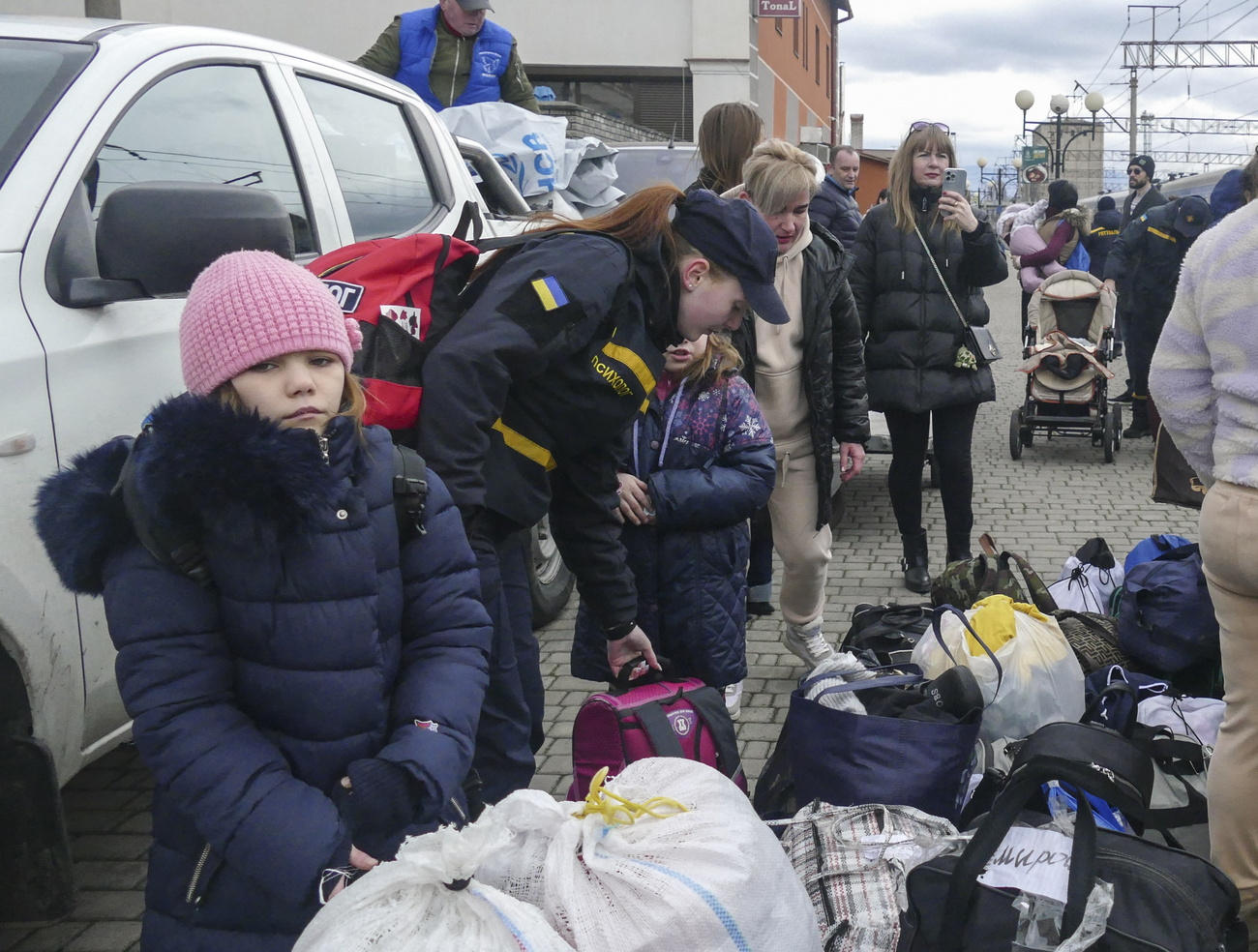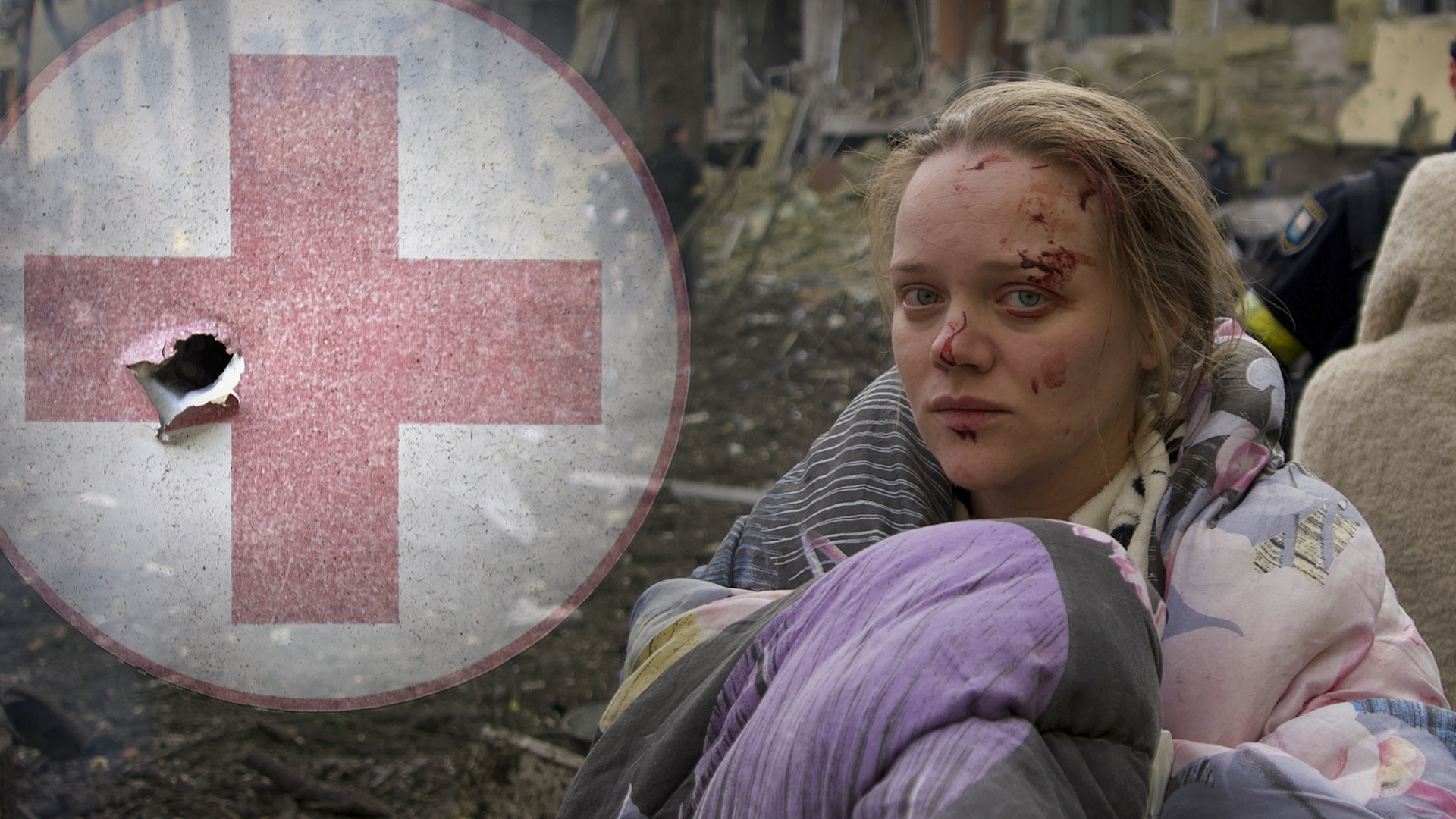
ICRC president: humanitarian law is violated ‘every day around the world’

From Ukraine to the Middle East, through Sudan and Ethiopia, international humanitarian law is under severe strain. The Geneva Conventions celebrate their 75th anniversary against a backdrop of multiple armed conflicts. As the guardian of these rules, the ICRC is sounding the alarm.
“International humanitarian law is probably violated every day around the world,” declared Mirjana Spoljaric Egger, the president of the International Committee of the Red Cross (ICRC), on the set of Géopolitis External linkat RTS. Just 75 years after the adoption of the Geneva Conventions, which aim to protect victims of armed conflicts, the time is not for celebrations.
“The ICRC now records over 120 armed conflicts around the world, a stark increase from around 20 conflicts observed just 25 years ago,” said Spoljaric Egger. From Ukraine to Gaza, via Ethiopia and Sudan, wars are intensifying, leading to an escalation of violence not only for civilians, but also for humanitarian workers.
Late August, the UN announced that 280 aid workers had been killed in 2023. A sad record that could be broken again this year, according to the Aid Worker Security Database, which has recorded over 200 victims since the beginning of the yearExternal link – more than half of whom were killed within the Palestinian territories.

In light of this situation, are the Geneva Conventions still adequate to address today’s tense geopolitical context? “They are not only adequate, they have never been more essential. We could not rebuild such treaties today in the current state of the world”, said the ICRC president, before urging States to prioritise respect for international humanitarian law.
The rise of killer robots
A priority that has become ever more pressing as the nature of warfare is evolving rapidly. From robotic dogs to AI-powered drones, the world is witnessing an intense arms race driven by artificial intelligence advancements. Ukraine, in particular, is acting as a laboratory for these new technologies. This year, the Ukrainian army launched the world’s first military branch dedicated to unmanned systems.
In Gaza, meanwhile, the Israeli army has reportedly used artificial intelligence on a large scale for the first time. External linkAccording to an investigation by the Israeli media +972External link, a programme known as Lavender identified up to 37,000 targets as potential Hamas members during the initial phase of the conflict. According to anonymous testimonies from Israeli intelligence officers cited in the investigation, this software reportedly has a margin of error of 10%, and 15 to 20 collateral victims were deemed acceptable per target at the beginning of the conflict. The Israeli army denied that artificial intelligence was used to identify suspected terrorists, claiming that the programme is merely an auxiliary tool for officers.External link

More
‘We have a unique opportunity to regulate autonomous weapons’
These technologies, which speed up the pace of warfare, raise serious concerns for the United Nations, which perceives a potential connectionExternal link to the scale of destruction and the unprecedented civilian casualties in Gaza. Together with the ICRC, the UN is calling for the adoption of a binding treaty to ban and regulate autonomous weapons by 2026. “We are calling for a ban on weapons that are beyond human control and therefore beyond the responsibility of differentiating between civilian and military targets,” explained Spoljaric Egger.
Interview with Mirjana Spoljaric Egger (French with English subtitles) below:
Under heavy criticism
The ICRC is facing a major internal crisis, which has led to waves of redundancies. “We have been able to stabilise the financial situation,” said Spoljaric Egger. “That doesn’t mean that we have all the resources we need to provide full assistance in the hundred or so conflicts where we operate.”
The organisation has also faced numerous criticisms, particularly regarding access to hostages and prisoners of war. “These are extremely delicate, complex, and dangerous operations. Without an agreement between the parties on the terms for the release of hostages, we cannot act or access the prisoners,” the president defended. She stated that the ICRC has facilitated the release of over a hundred hostages held in Gaza and that the organisation continues to work to gain access to those who remain in captivity. Similarly, on the Israeli side, authorities have suspended the ICRC’s access to prisons since October 7, despite it being a legal obligation under the Fourth Geneva Convention, she noted.
Additionally, Spoljaric Egger recently denouncedExternal link a growing instrumentalisation of international law, which can sometimes be distorted to “justify the use of violence”. This is particularly the case with the concept of “human shields”, frequently invoked in the conflict between Israel and Hamas to justify the high number of collateral casualties. According to the laws of war, the responsibility for the death of a civilian used as a “human shield” lies with those who employed them for that purpose, rather than on the individuals who caused their death, provided that the principles of distinction and proportionality are respected. This situation could lead to an escalation of violence against civilians in these areas.
Ultimately, it is against the dehumanisation of war that the ICRC is fighting, concluded Spoljaric Egger: “I remain convinced that the human heart is one that desires peace, stability, and believes in the good within people. Our chances of survival are always greater in peace than in war.”
It was at the initiative of the ICRC that the revision of the Geneva Conventions was signed on August 12, 1949, in the aftermath of World War II. These treaties and their additional protocols form the foundation of international humanitarian law.
Designed to preserve human dignity in times of war, they establish rules for armed conflicts to protect individuals who are not participating, or no longer participating, in hostilities.
This article was first published in French on RTSExternal link on August 31, 2024, in collaboration with SWI swissinfo.ch. Translated by Rachel B. Häubi.

In compliance with the JTI standards
More: SWI swissinfo.ch certified by the Journalism Trust Initiative




























You can find an overview of ongoing debates with our journalists here . Please join us!
If you want to start a conversation about a topic raised in this article or want to report factual errors, email us at english@swissinfo.ch.